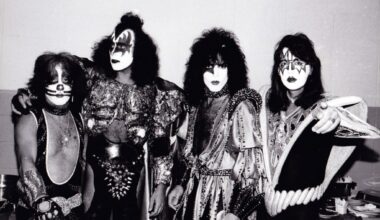There will always be a few musicians who do not receive the respect that they deserve. Even when bands like The Velvet Underground get their due in the press and among the general public, it’s usually after they’ve ceased playing music, so many people only recognize their genius in retrospect. Although Rush was able to see their history confirmed, Alex Lifeson said that one guitarist was one of rock & roll’s unsung heroes.
Before Rush earned global success, Lifeson already had a few underrated gems in his collection. Lifeson had a knack for merging hard rock fury with the band’s mathematical accuracy in prog-rock epics. His style often resembled Jimmy Page playing with King Crimson.
Throughout the band’s history, Lifeson could be observed introducing new sounds into his aural arsenal. As the band experimented with different keyboard sounds, Lifeson kept his own synthesizers running. He created aural landscapes with numerous effects pedals on albums such as Hold Your Fire and Power Windows.
While Lifeson was redefining what a rock and roll guitarist could achieve, Steve Morse was developing his guitar voice. Morse first appeared on the scene as a member of Dixie Dregs and later with his band when opening for Rush, where he amazed Lifeson from the first time he heard him.
When asked about his favorite players, Alex Lifeson mentions Morse as one of the most underappreciated, telling Music Radar, “He has such an amazing ability.” I always thought he should have made it big in whatever he did. He was certainly successful in whatever bands he worked in. However, I don’t believe he ever received the kind of attention that he so richly deserved.
Even though Morse could play circles around most aspiring guitarists on the scene, his most high-profile concerts were with Deep Purple. Deep Purple brought in Steve Morse to replace Ritchie Blackmore after his second departure from the band. Joe Satriani stepped in for one tour. Since then, Morse has been a cornerstone, contributing incredible licks on albums like 2013’s Now What???
It’s easy to understand Lifeson’s point of view when listening to his guitar solos. Regardless of the genre, Morse understands how to find his place as a guitarist. Whether putting in ear candy to match vocals or playing a monster riff, he excels.
Lifeson’s guitar playing in the latter half of Rush’s career may have borrowed tricks from Morse. This kept the audience on their toes across songs like Clockwork Angels and Snakes and Arrows. While many guitarists tend to stagnate over time, Morse reminded Lifeson that there is always possibility for progress at every step.






